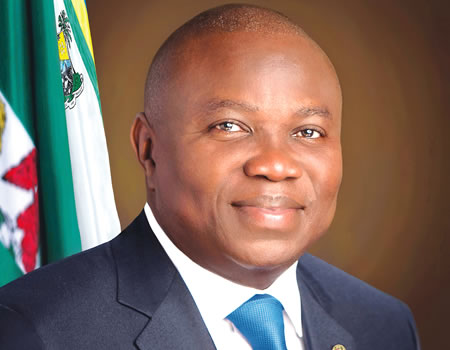The General Manager LASODA, Dr. Awelenje Babatunde, who made this known at a day sensitization forum on Lagos State Special People’s Law for Local Government Chairmen in Lagos State held yesterday in Lagos, said that Lagos State Government has changed the standard of living of people with disabilities across the State, putting an end to inaccessibility and unemployment.
According to him, the issue of disability is complex, dynamic and dimensional, the major aspects that are being by the disabled are the issue of accessibility and unemployment.
While enlisting the state government’s programmes for the PWDs, Awelenje said that the government has picked up sign language training workshops as an annual event in order to cater for the people with hearing impairment through an interactive session with the people in special schools.
Meanwhile, The Executive Director of Centre for People with Disabilities, David urged governments at all levels to come up with more effective ways to ensure the enforcement of the Lagos State Special People’s Law (LSSPL) and disabilities, especially in the aspect of accessibility for people with disabilities across the State.
ALSO READ: Riot, gunshots as Atiku submits PDP nomination form
David said that there is need for a reorientation of MDA officials on the Lagos State Special People’s Law, as the challenges faced by people with disabilities remains one that could only be successfully managed through a multi-Sectional approach.
“Even though there is an established disability office in LASODA, other MDAs should be made to see their role in the implementation of the LSSPL. This could be done through consistent advocacy and sensitization so as to ensure inclusion of PWDs.
He added that the PWDs through the Organisations they belong to need to be sensitized on the LSSPL, noting that awareness and the law were low and it is important that PWDs understand the law that was designed to protect their rights.
While stating the conclusion from the investigation carried out on the compliance of public institutions to the LSSPL, David said that the study explored the social context in which PWDs are currently existing in Lagos state as well as their accessibility to public buildings and spaces as well as their inclusion for development.
The ED posited that the key findings from the study showed that policy actors were aware of the LSSPL but do not have a thorough knowledge of its provisions, adding that a substantial amount of PWDs were not aware of the law and most did not have the knowledge of its provisions.
He observed that the LSSPL is weakly enforced and it is evident in the findings around accessibility, inclusion and welfare of PWDs, noting that the MDAs in the study were fairly accessible but vital facilities were still missing and the existing facilities such as specialized parking spaces are not available for the use of PWDs.





